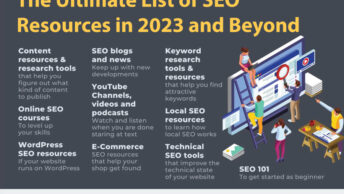As Forbes put it, Google has mounted a Strange Attack On Bloggers And The Public Internet. Not surprisingly there has been a massive reaction to the Google Reader shutdown:
Does Google understand the concept of corporate social responsibility? That seems to be the basic question around the company’s strange decision to shut down a tiny service that serves as a major audience conduit for many thousands of bloggers, citizen journalists, and self publishers.
Google has stated that it will close Google Reader as of July 1. Google has not given very compelling reasons for this except to say that it has a declining user base. Nevertheless it raises some very interesting questions, which we will explore here.
Google Announces Closure
The official Google blog in a post entitled A Second Spring Of Cleaning explains why Google must focus:
We’re living in a new kind of computing environment. Everyone has a device, sometimes multiple devices. … To make the most of these opportunities, we need to focus – otherwise we spread ourselves too thin and lack impact.
With respect to Google Reader they noted the following:
We launched Google Reader in 2005 in an effort to make it easy for people to discover and keep tabs on their favorite websites. While the product has a loyal following, over the years usage has declined. So, on July 1, 2013, we will retire Google Reader.
Loyal and Enthusiastic Users Sign Petitions en masse
Perhaps the number of users may have seen some decline but they represent some of the most active participants on the Web. Not surprisingly a number of online petitions were started. One of them that asked that Google should Keep Google Reader Running. This one has now attracted 124,400 supporters at the time of writing. Another website, savegooglereader.org,suggested that Google should transfer the operation to some other individual or body.
Others have been more relaxed about the news. It should not have been a surprise according to Gigaom.
If the company maintained every niche product with N thousand fans, even paying ones, it’d become the very bungling bureaucracy we love to hate. For a company with Google’s ethos and standing, any such dead-end, non-revenue-producing product that’s retained is holding others back, and prevents the company from moving forward and making true innovations instead of incremental improvements.
Indeed there are a number of posts with titles such as 40+ alternatives to Google Reader and yet again, even more (33) Google Reader alternatives.
Google Grew Organically
To better understand what is going on, it may be wise to stand back and look at the big picture. This whole scenario has really developed because Google has grown organically and explosively given the success of its core activity, Search and the associated advertising revenues. The strong cash flow that its growth created means that pruning decisions may be taken later rather than sooner. So even strong growth activities may need to be chopped down from time to time. This could be the answer here, although there is a counter view.
Google Reader has been a prime way in which people have become aware of online content and shared it with their contacts. This has been true particularly for professional journalists who often scan this source of information several times each day. Google dearly wants its Google Plus social media effort to succeed and become the preferred way in which users share items on the Web. According to a former Google Reader product manager, Google Reader is being sacrificed so that Google Plus will become the only (Google) way to share information. That seems a reasonable tactic but it will only succeed if Google Plus becomes an effective social medium. If people are not inclined to use Google Plus, then the Google strategy will have failed. Why would Google be taking this major risk?
Google Is Now Focusing – In A Product Driven Way
One possible explanation of all this is that Google is operating in a Product Driven way rather than a User Centric way. Neglecting how users will react to the processes that are available may mean that unexpected outcomes will occur. It could be that Google prefers to send out spiders to find and index online properties rather than being pinged by online properties as they issue RSS news feed items.
All the signs are that Google is very much less interested in RSS Newsfeeds. Google may well state that its mission is to organize the world’s information and make it universally accessible and useful. However by its actions it would seem that some information is less of a priority than other information. As evidence we may note that Google has now killed Its RSS Subscription Browser Extension, too.
What Will Google Do About Feedburner
Feedburner is owned by Google although over the years there seems to have been a lack of corporate support and performance has occasionally been less than satisfactory. The obvious question is whether the Google Reader Shutdown Is Yet Another Nail In Feedburner’s Coffin.
Closing Google Reader Is Dangerous
AJ Kohn’s blog post with that title has the disclaimer at the end: TL;DR
Literally that means, “Too long; didn’t read” which is said whenever a nerd makes a post that is too long to bother reading. It should be required reading nevertheless since his thesis is that this action is dangerous for Google.
He believes as I do that those using Google Reader are different. They’re the information consumers – influencers and subject matter experts. They’re the ones sifting through the content (organizing) and sharing it with their community (making it accessible) on platforms like Twitter, Facebook and Google+ (useful). In other words, Google Reader allows a specific set of people to help Google fulfill its mission by disseminating more information widely.
The original source and exposure of content is of huge importance. Google might have Ripples but that only tells them how the content finally entered Google+ not how that content was discovered.
I’m certain that users will find alternatives because there is a need for this service. Google just won’t know what new sites influencers might be reading more of or which sites might be waning with subject matter experts. Google will only see the trailing indicators, not the leading ones.
If Google in a simple-minded way has used a bean-counter approach in cutting out a non-revenue producing property, they may have overlooked the negative impact for them in social media and in their understanding of information flows. Perhaps in the undoubted internal rethinking that is going on at the moment, the decision may be reversed.
If not, to end on a note of hope there is a view that Google Reader may very well rise again… as part of Google+. In other words, RSS won’t be killed by social media, it will become social media.
Google could even take this a step further and encourage brands to incorporate their RSS feeds into their Google+ pages, so every story automatically shows up as a Google+ post. By doing that, Google removes the extra step of sharing each post to Google+, and brands get a lower-friction Google+ experience. Google gets a more active user, and by extension, more active readers. When asked about this possibility, Google stated only that it “had no more plans to share at this time.”
Now wouldn’t that be a happy ending.






